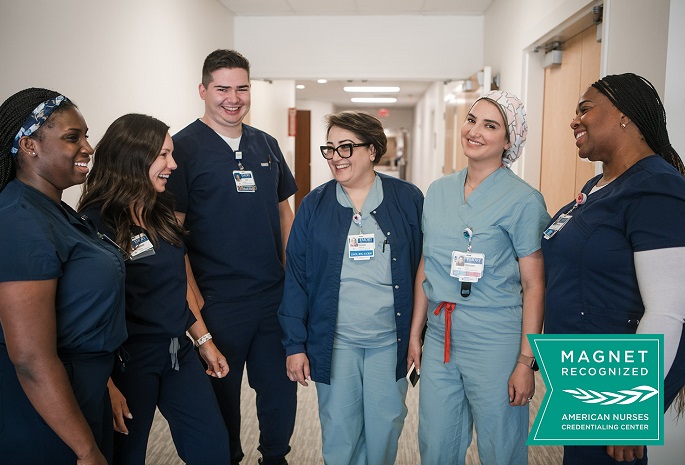The Mitral Valve Repair Reference Center Award is granted by the American Heart Association and the Mitral Foundation to institutions that excel in the field of mitral valve repair, emphasizing quality, volume and patient outcomes.
To receive this designation, hospitals must meet strict criteria, including a high volume of surgical procedures, consistent repair rates over 95%, and surgical outcomes with less than 1% mortality for degenerative mitral valve disease.
Since its inception, the award has been a beacon for patients seeking advanced care from specialists who are recognized for their expertise and commitment to superior clinical outcomes. At Emory Saint Joseph’s Hospital, we are proud to be part of such an elite group, and our statistics speak volumes:
- Over 99% repair rate for degenerative (prolapse) mitral valve disease.
- Mortality rate of less than 1%, with most years achieving 0%.
- Over 6,000 robotic heart surgeries performed across Emory Healthcare, with more than 4,000 being robotic mitral valve repair surgeries.
These numbers are much more than benchmarks. They’re evidence of a philosophy centered on specialized care, innovative techniques and dedication to every single patient.
Why the Award Matters for Patients
For patients, navigating the healthcare system can feel overwhelming. Many may not know what "reference center" designations mean or how to find a facility that specializes in high-quality, high-volume mitral valve repair surgery. The Mitral Valve Repair Reference Center Award was designed to solve this challenge by highlighting centers where patients can expect best-in-class care.
At Emory Healthcare, we offer all available treatment options to treat mitral valve disease. In addition to our expert surgical team, we also have highly specialized structural heart disease specialists who offer transcatheter options for those that may be better treated with this approach. Our structural cardiologists at Emory have trained many of the structural cardiologists practicing in Georgia.
For our patients, choosing a reference center can mean the difference between valve repair and replacement, shorter recovery times and improved quality of life.
Mitral valve disease affects up to 2% of the population, yet only a small fraction of those with severe regurgitation receive the advanced care they need. By consolidating care into high-volume centers like ours, patients benefit from expertise that's hard to match elsewhere.




